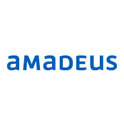The impact of meta search engines and OTAs on hotel technology
From Amadeus Newsletter | Room With a View... Fast insight into Hotel IT
As part of the European Hotel Technology Next Generation (HTNG) conference held in Berlin (November 14-16, 2011) where Hospitality experts from hotel chains and the technology vendor community shared the latest technological advancements that shape the industry, Amadeus presented its perspective on the impacts of search engines and OTAs on hotel systems.
Whilst the distribution landscape has seen the growing importance of OTAs (Online Travel Agencies), travelers now increasingly shop and book from new emerging channels such as search and meta-search engines, as well as social media sites. As smartphones and tablets are more sophisticated, a wide range of travel and hotel apps create new and more addictive shopping capabilities for travelers. While guests are looking for information and convenience, the norm now is to surf all these new multiple sources of information and at the same time, compare results to find the best hotel, the best deal, the best location and the best amenities, etc. that will match what we expect from our hotel stay. As we anticipate a growth of on-line direct and indirect channels to generate more than 50 % of hotel reservations by 2020, we also anticipate that meta search players will increasingly be involved in the search process and that they might be used in 20% of the cases.
In a way the tone and standards have been set by the way we search on Google, and searching for a hotel should be as simple as any other search that we make, plus adding the parameters that are important to our choice. With that in mind, hotel systems should adapt to new search paradigms such as search around a geographical zone, geo localized data, ratings from users, by budget, by period, by fuzzy search criteria and all at the same time.
This has three main consequences on hotel systems. First is the scalability and reliability of systems to support heavy traffic. The new shopping and search process creates exponential traffic to hotel systems which for example have to absorb nearly 200,000 transactions a day (the equivalent of 2 transactions per second) from just one search engine. How to scale systems up to absorb this traffic and how to avoid lengthy response times to the user? Second is the accuracy of information provided. How to keep a high level of accuracy while guests are searching through multiple channels simultaneously? Third is the cost. How to scale resources up and down to adapt to traffic peaks, and how to design new shopping functionality without facing high development cost?
These shopping trends have been the norm for airlines since a few years and are now naturally reaching the hotel space. Amadeus, as a technology provider for the travel industry, have long developed systems for travel providers addressing these changes and allowing them not only to sustain the traffic pressure but to also innovate in marketing and merchandising with new shopping experiences. This is also true for hoteliers. With Amadeus Hotel Platform – Search Engine, hoteliers can benefit from the latest technology enhancements in search technology. Thanks to intelligent caching techniques, hoteliers no longer worry about the growth of traffic, but more importantly have the opportunity to enhance their guest experience with faster response times, response to multi-criteria request, interactive map searches and single and multi-property availability in calendar views with flexible check-in and check-out dates. Proven results were presented to Hoteliers at HTNG showing response time improvements divided by 10, or 80% of search traffic absorbed without impacting the core CRS application, as well as new shopping features allowing hotels to offer a wide range of responses to guest in combinations not available today.
In summary, shopping through on-line channels continues to increase and guests want faster and accurate responses to multi-criteria search. Hotel IT systems are impacted and need to respond with scalability and reliability.
Is current hotel technology fit for these changes? Can hoteliers bear the cost to adapt? Solutions exist with proven results: Amadeus Search Engine technology allows protecting against exponential traffic, reducing overall IT costs, enhancing end user experience, and finally opening the door for innovative marketing.
Amadeus
Amadeus is a leading provider of advanced technology solutions for the global travel industry. Customer groups include travel providers (e.g. airlines, hotels, rail and ferry operators, etc.), travel sellers (travel agencies and websites), and travel buyers (corporations and travel management companies). The Amadeus group employs around 15,000 people worldwide, across central sites in Madrid (corporate headquarters), Nice (development) and Erding (operations), as well as over 70 local Amadeus Commercial Organizations globally and has a presence in more than 190 countries. The group operates a transaction-based business model. Amadeus is listed on the Spanish Stock Exchange under the symbol "AMS.MC" and is a component of the IBEX 35 index. To find out more about Amadeus please visit www.amadeus.com, and www.amadeus.com/blog for more on the travel industry.
